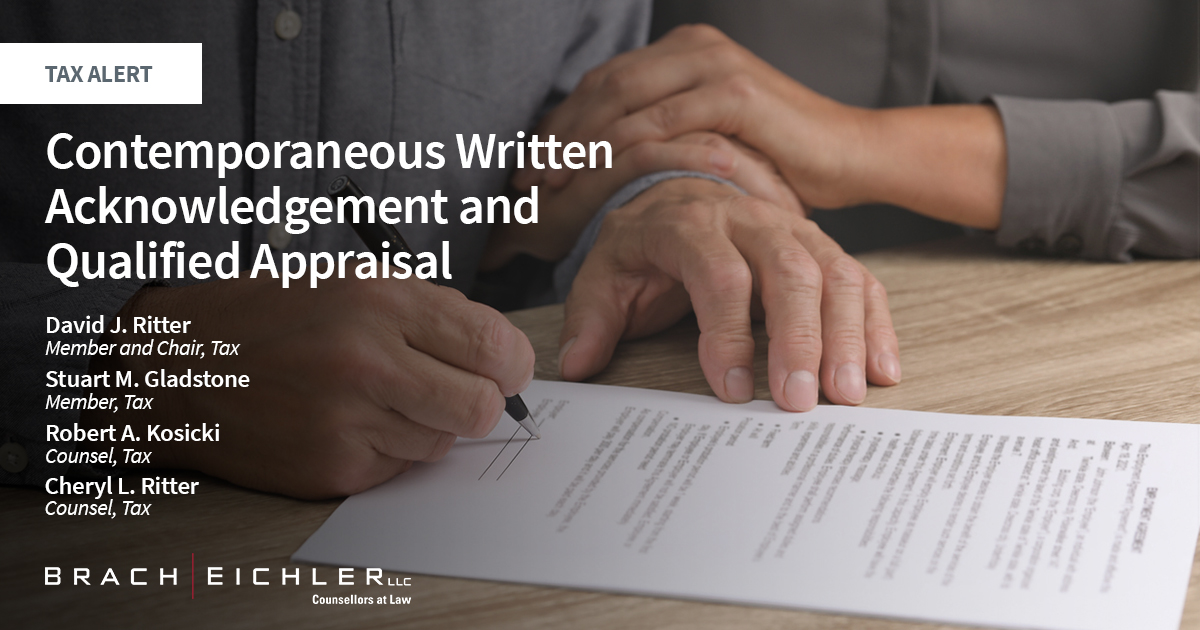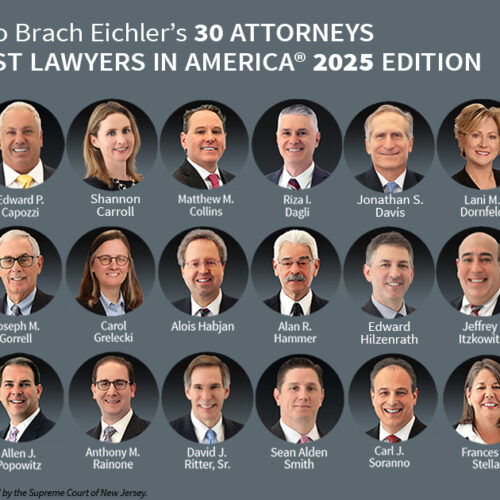Tax Alert | Contemporaneous Written Acknowledgement and Qualified Appraisal

March 11, 2024
This is the second alert dealing with the Estate of Hoensheid v. Commissioner of Internal Revenue, T.C. Memo 2023-34(2023). In the first alert, the anticipatory assignment of income and four-factor analysis were discussed. In this alert, more mundane, but nonetheless important topics that are encountered by donors, are discussed. In Hoensheid, one of the shareholders donated his shares to a donor-advised fund; a charitable organization. The IRS then raised two issues which are common to all contributions to charity with an additional issue when the charity is a donor-advised fund.
First, when the value of the property contributed is $500,000 or more, the taxpayer is required to substantiate the claimed deduction with both a contemporaneous written acknowledgment (herein “CWA”) and a qualified appraisal by a qualified appraiser. A CWA must include the amount of cash and a description of any property contributed, IRC § 170(f)(8)(B). A CWA is contemporaneous if obtained by the taxpayer before the earlier of either (1) the date the relevant tax return was filed or (2) the due date of the relevant tax return.
Second, the Tax Court addressed the qualified appraisal requirement of IRC § 170(f)(11)(A)(i) and (D) and (E) which, to paraphrase, denies a deduction if the deduction is in excess of $500,000 and a qualified appraisal by a qualified appraiser is not attached to a Form 8283, Noncash Charitable Contributions, which is attached to the taxpayer’s annual return, which, in this case, is the Form 1040. The Treasury Regulations contained detailed requirements for both the appraisal and appraiser. The Tax Court held that substantial compliance rather than strict compliance was the standard. In Hoensheid, the IRS raised eight objections to the appraisal. The Tax Court observed the most important of the many requirements was that the appraiser be qualified. In Hoensheid, the appraiser did not hold himself out as an appraiser, performed valuations infrequently and had no certifications from a professional appraiser organization. The Tax Court had little difficulty in holding that the taxpayer had failed to obtain a qualified appraisal and disallowed the deduction.
IRC § 170(f)(18)(B) adds a specific requirement for donor-advised funds that any CWA include a statement that the donee “has exclusive legal control over the assets.” The Tax Court observed that it applies this requirement strictly, and substantial compliance is not enough. The IRS argued that what had really been contributed was cash because of the anticipatory assignment doctrine discussed in the first alert. The Tax Court rejected this argument and held that the taxpayer had made a valid gift of stock under state law even though the Tax Court characterized it as cash because of its application of the assignment of income doctrine.
For more information or assistance, please contact:
David J. Ritter, Esq., Member and Chair, Tax Practice, at dritter@bracheichler.com or 973-403-3117
Stuart M. Gladstone, Esq., Member, Tax Practice, at sgladstone@bracheichler.com or 973-403-3109
Robert A. Kosicki, Esq., Counsel, Tax Practice, at rkosicki@bracheichler.com or 973-403-3122
Cheryl L. Ritter, Esq., Counsel, Tax Practice, at critter@bracheichler.com or 973-364-8307
Related Practices: Tax
Related Attorney: David J. Ritter, Cheryl L. Ritter, Stuart M. Gladstone, Robert A. Kosicki












